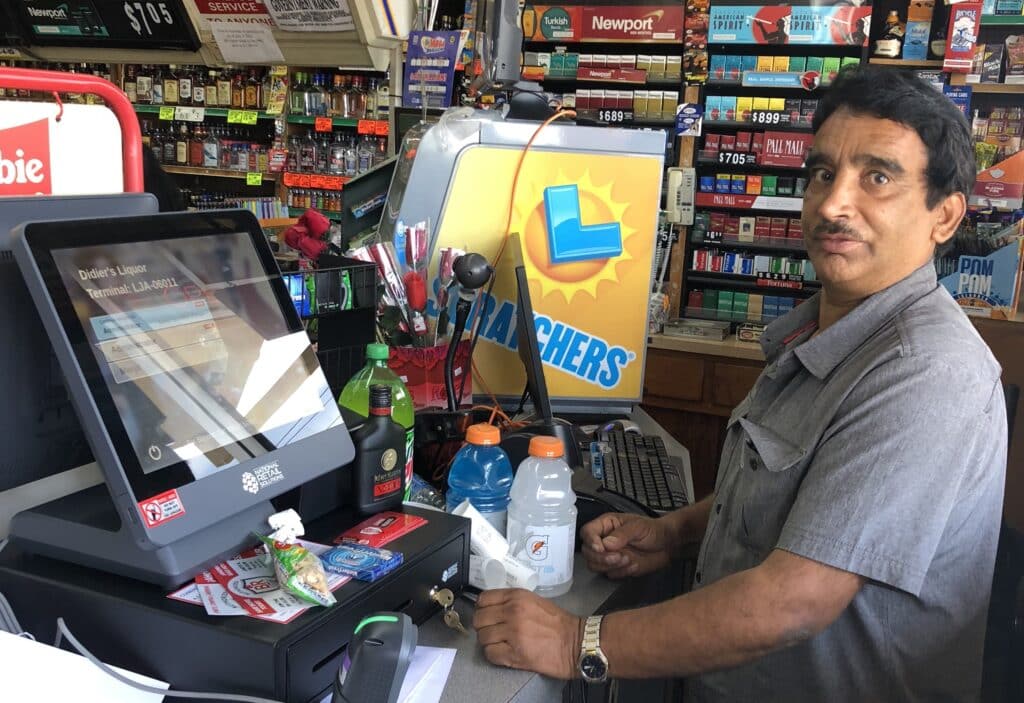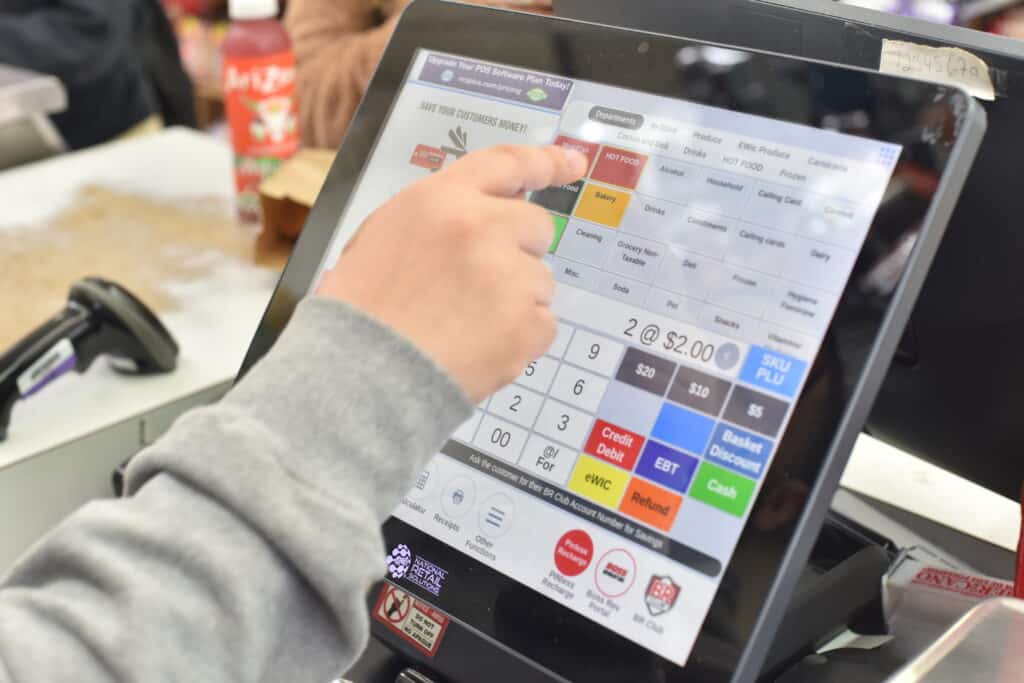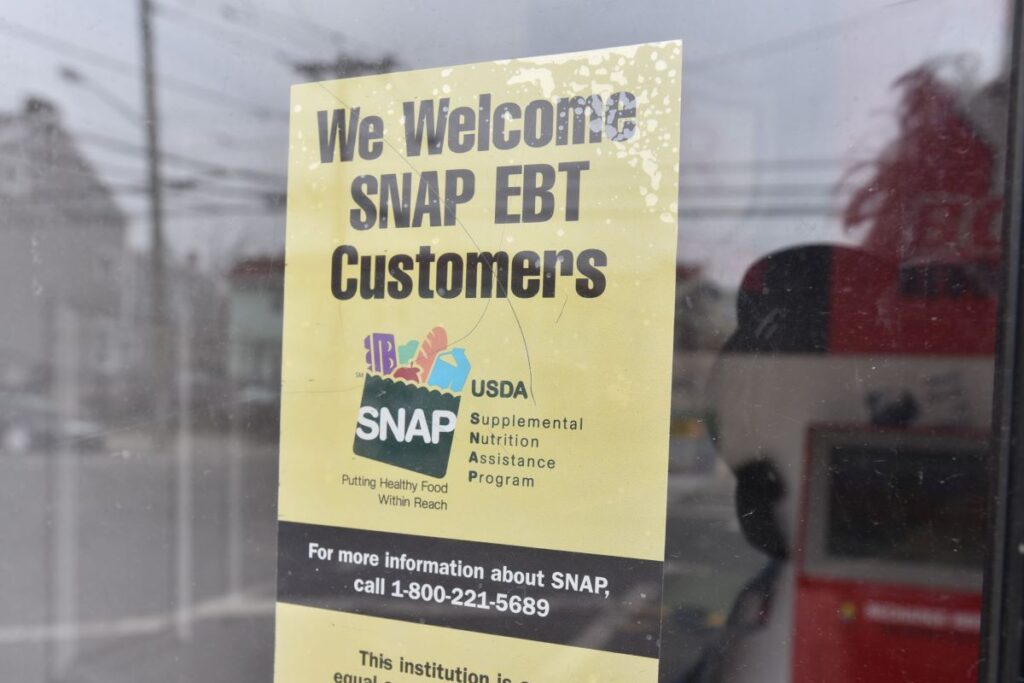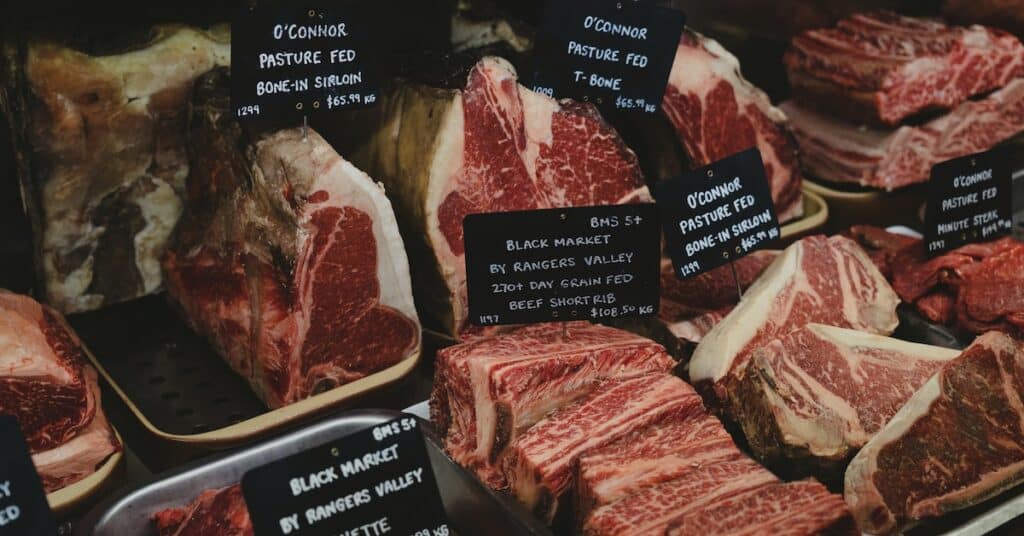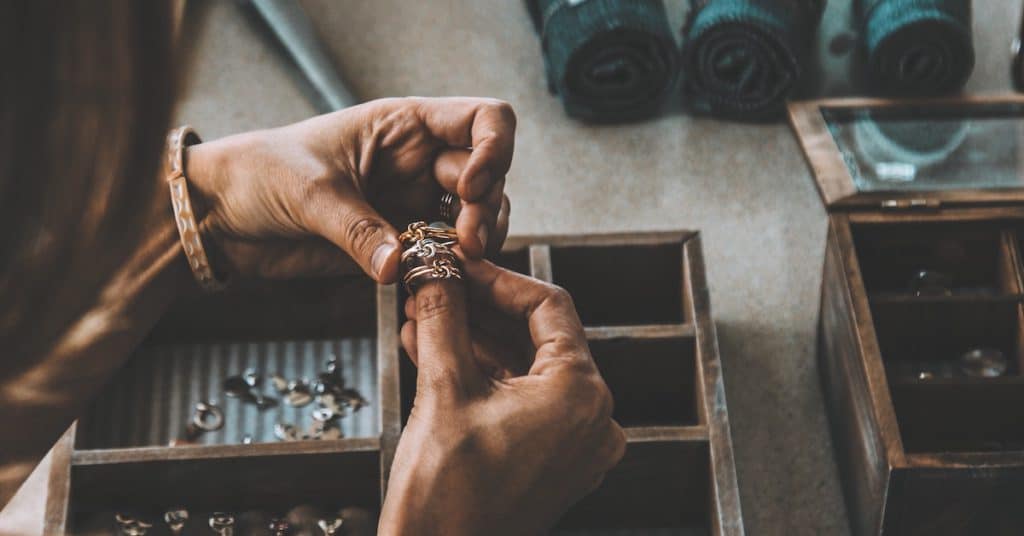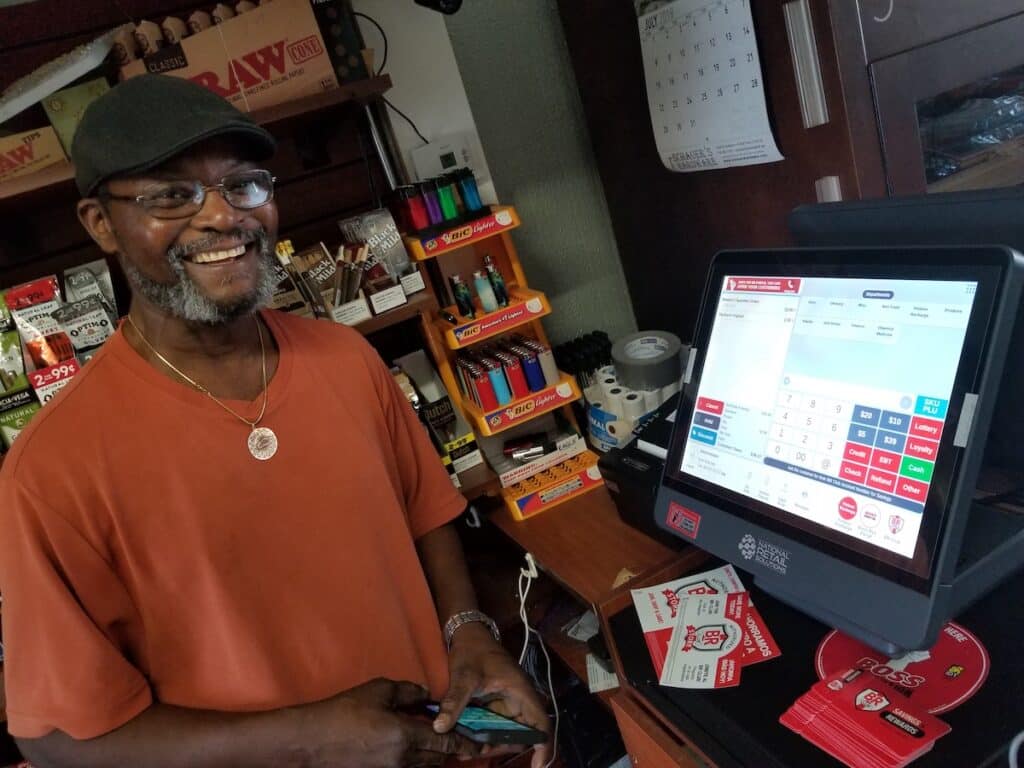| Key Takeaways | Description |
|---|---|
| Budgeting and Financial Planning | Understand the costs involved in starting a small liquor store. |
| Choosing the Right Location | Select a strategic location based on market and demographics. |
| Effective Inventory Management | Balance inventory and integrate e-commerce with POS. |
Start a small liquor store: A profitable venture within reach
Opening a small liquor store can be profitable, though it comes with its share of expenses. With the right approach and careful planning, the dream of running your own liquor business is completely achievable.
This guide will walk you through the essential steps, from managing costs to making smart choices about location and inventory, setting you on the path to success in the liquor store industry.
What are the costs associated with obtaining a liquor license?
The cost of obtaining a liquor license can vary significantly depending on the state and the type of license required. The average cost of liquor license fees was $1,406.98 in 2018.
However, the range can be quite broad, with costs varying from as low as $10 to as high as $14,000. In some states, the only way to obtain a liquor license is by purchasing an existing one due to a limited number of available licenses, which can significantly increase the cost.
In addition to the license fee, other costs may be associated with obtaining a liquor license. These can include application processing fees, ranging from $40 to $1,000, and fees for additional permits required to be eligible for a liquor license.
Furthermore, the cost of renewing a liquor license, which typically needs to be done every 1 to 3 years, is generally lower and requires only the payment of a renewal fee.
It’s also important to note that legal fees can be incurred when applying for a liquor license. The average cost for legal assistance with a liquor license application is around $3,000.
Sometimes, a liquor license can cost hundreds of thousands of dollars or even more than a million dollars. This is particularly true in states like California, where the price of full on-sale liquor licenses, which include the sale of beer, wine, and liquor for consumption on premises, can exceed $400,000.
Given the wide range of costs and the complexity of the process, it’s recommended to consult with a professional or a licensing agency to navigate the process and understand the specific costs associated with obtaining a liquor license in your specific location and for your specific needs.
Decide what makes your store unique.
To make a profit in the current market, you must set yourself apart from other stores. You need to have something unique for customers to remember you. Think about your talents and what you can offer your customers.
For example, if you know about wines and spirits, you can focus on providing extra service to your customers. Engage your customers in discussions about the history and unique tastes of your more eclectic liquors, and provide suggestions on what liquors work best for cocktails.
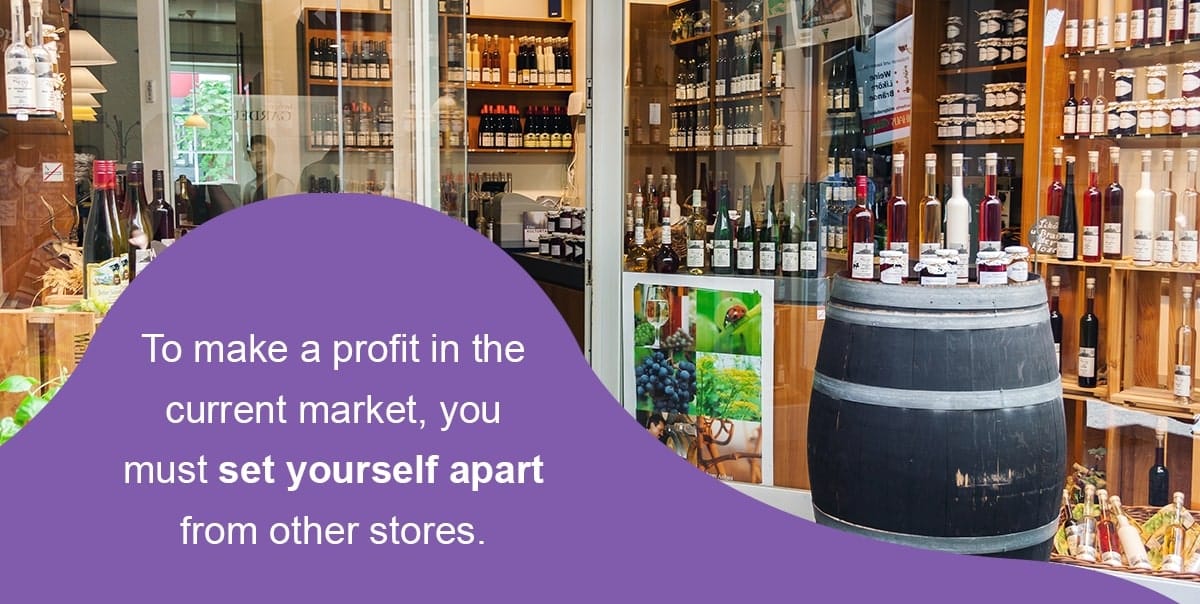
Determine your spending plan
Liquor businesses require startup capital to open, and the amount you need depends on many factors. Remember to include the following costs in your budget:
- Inventory: Your initial inventory may cost more than expected if you want to start with a fully stocked store because of the high alcohol prices.
- Lease: If you rent your store space, you must pay your landlord and utility companies monthly.
- Staff wages: Consider how big of a team you’ll need to manage your business and account for everyone’s wages in your budget.
Once you establish a budget, you can search for an investment or take out a business loan.
Get licenses from your city, county, and state
The United States has liquor laws that change by area. People often do not realize how many licenses they need to run a liquor store.
You must research your city, county, and state liquor rules and get the necessary licenses. Remember to look up rules for business hours too. Other legal considerations for starting a liquor store business include:
- Liquor license quotas: Does your state limit the number of liquor licenses issued at one time? Some states and municipalities have a maximum number of licenses to issue based on an area’s population.
- Classes of liquor license: Do you need a specific liquor license to own a small liquor business? In some states, you need a retail liquor license, not just a general one.
- Application requirements: What documents and information must you provide when applying for a liquor license? Your state’s application guidelines determine what to include.
- Fees and overall costs: How much does having the appropriate liquor licenses for your area cost? Fees vary by region, and you may have to apply for a license at multiple levels of government.
- Defending your license application: Will you need to defend your license proposal? Your community may have the option to contest your application, requiring you to defend it.
Establishing a liquor store involves many legal considerations, but taking these steps ensures you have a reputable business. You can hire a lawyer to help you understand what to do when in doubt.
Choosing the right location for a liquor store: Key considerations
Choosing the right location for a liquor store is a critical decision that can significantly impact its success. Here are key factors to consider, informed by the provided search results:
- Market Analysis
Conducting a thorough market analysis is essential. This involves understanding potential income, identifying local competitors, assessing walk-in traffic, and evaluating the cost of rent. Market research helps in making data-driven decisions rather than relying on assumptions. - Demographics and Traffic Patterns
Understanding the area’s demographics, including household income and size, is crucial. The location should have a customer base that matches the products you plan to sell. Additionally, analyzing traffic patterns helps you select a site that is easily accessible to your target customers. - Zoning and Regulatory Restrictions
Be aware of local zoning laws and regulations that may restrict where you can open your liquor store. These can limit your options and influence your location choice. - Rent and Lease Costs
Consider the rent and lease costs, as liquor stores require significant space. High costs in desirable areas can impact your budget and financial planning. - Access to Suppliers
Your location should have easy access to suppliers and distributors, ensuring efficient operations and inventory management. - Competition
Identify how competitors are performing in the designated market area. A location with fewer competitors or where you can offer unique products or services may be advantageous. - Visibility and Foot Traffic
Choose a location with high visibility and foot traffic. This increases the likelihood of attracting walk-in customers. - Parking and Accessibility
Consider the availability of parking and the overall accessibility of the location. A store with its own parking lot or ample nearby parking is preferable.
Digital presence and Ecommerce integration
Establishing a strong online presence can significantly complement your physical store. By reaching a wider audience and engaging customers through digital channels, you enhance your store’s visibility and accessibility.
Integrating ecommerce capabilities into your Point of Sale (POS) system can streamline online sales. This integration allows for efficient in-store and online inventory management, ensuring a seamless shopping experience for your customers, whether they visit your store physically or browse your products online.
Keep track of your inventory.
Liquor has a high cost, so you need to be careful when you stock your inventory. Try to focus on getting items that you sell often. You can buy these items in bulk to save money and make a higher profit.
Customers like full shelves, so you want to buy as much stock as you can safely afford. If you have a smaller budget, arrange your shelves so they don’t look empty. In order to avoid running out of top-selling products, make sure to use a Point of Sale system with inventory management software.
Want to give your liquor store a unique flair? You can try selling products that compliment your alcohol, such as:
- Glassware: Special glasses for alcohol enhance the drinking experience, and selling them saves your customers a stop at another store.
- Drink accessories: Preparing wine and cocktails requires accessories such as shakers and aerators you can sell near relevant products.
- Mixers: Drink mixers provide a convenient way for your customers to make their favorite cocktails.
- Food and snacks: Many alcoholic drinks pair well with gourmet food and snacks such as cheese, crackers, nuts, or pretzels.
- Homebrewing kits: Let your customers brew their own alcohol with a complete kit.
Curating your inventory to include the alcohol and accessories your community wants helps you market your store to your target audience.
Advertise your store

Before you advertise your liquor business, you must research whether the law will let you. Some areas do not allow you to advertise liquor stores.
If you can advertise, place an advertisement in the newspaper or on radio or television. You can also create a social media page for your store and ask customers to follow it.
Try having events like classes or taste testings to bring in customers too.
Get the equipment you need
Buying a point of sale (POS) system will help you manage your store more effectively. The POS+ from National Retail Solutions works like big stores’ technology, but it has a price that small businesses can afford. You can use the POS+ Point of Sale system to:
- Check customers out quickly: Speed up checkout lines with lightning-fast scanning technology.
- Count your inventory: Monitor the number of items in your inventory and get alerts when certain products get low.
- Manage your cashiers: Give each of your employees an account so you can track sales for their shifts.
- Review your sales numbers: Gain critical insights into your overall profits and sales trends.
- Remember to check for ID: Receive a reminder to ask for a 21+ license whenever you ring up an alcohol product.
To learn more about our POS system for liquor stores, start by requesting a quote, or you can buy the POS+ today!
